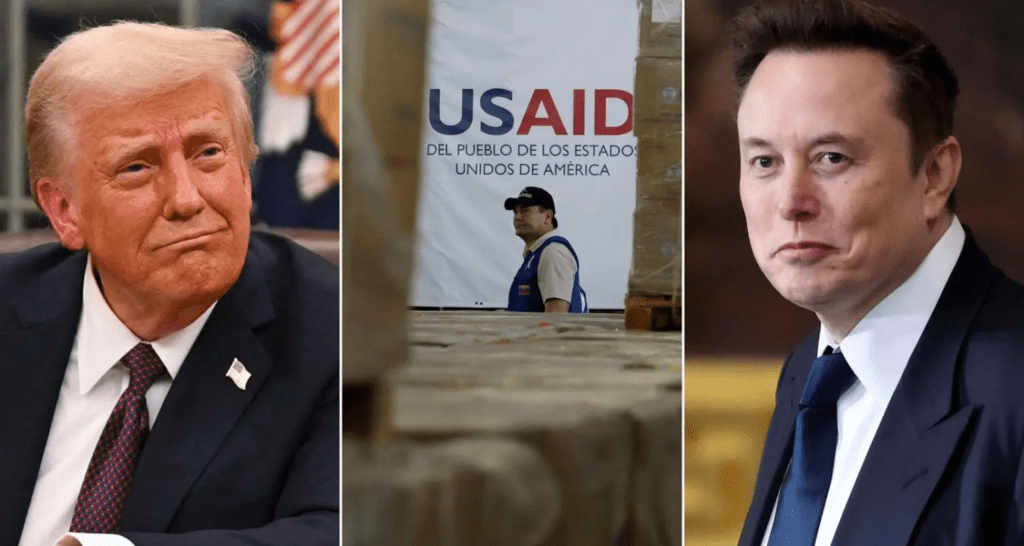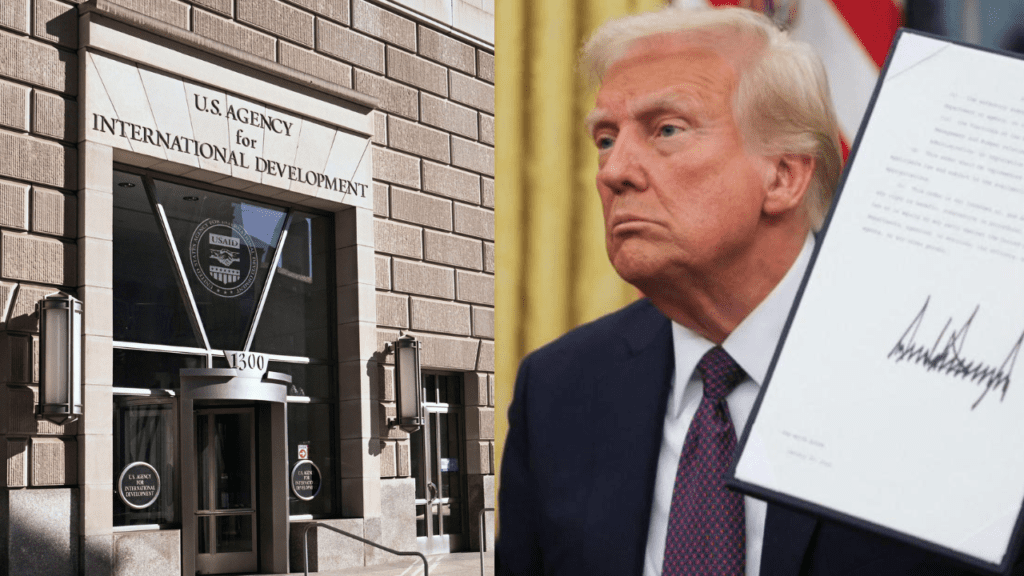
In a dramatic restructuring of U.S. foreign aid policy, the Trump administration is formally shutting down the U.S. Agency for International Development (USAID) and transferring its remaining functions to the State Department. The decision marks the end of USAID as an independent agency, a move confirmed by internal government notices and first reported by The Hill.
According to a formal Reduction in Force notice sent to USAID staff, the agency will cease to operate independently starting July 1, with operations either absorbed by the State Department or wound down by September 2.
Key Highlights:
USAID Employees Set for Termination

At its peak, USAID employed 10,000 staff. Now, only 900 employees remain, according to a memo to Congress obtained by CNN. These employees have been notified of their upcoming termination, with two key dates outlined:
- July 1: First wave of terminations and absorption of key functions into the State Department
- September 2: Remaining staff to complete the wind-down and decommission USAID assets
Jeremy Lewin, a recent USAID hire and former official in the Department of Government Efficiency (DOGE), stated that the State Department “will seek to retire USAID’s independent operation, consistent with applicable law.”
“The remaining USAID personnel will then supervise the responsible decommissioning of USAID assets,” Lewin wrote.
What Happens to USAID Programs?

It remains unclear which USAID programs will survive the transition, or how existing foreign aid missions will be restructured under State Department oversight. USAID’s programming spans humanitarian relief, global health, democracy promotion, and infrastructure support across more than 100 countries.
The move has raised concerns among policymakers and international development experts about:
- Potential loss of program effectiveness
- Increased bureaucratic bottlenecks
- Diminished U.S. soft power and influence abroad
National Security Designation and Union Rights Suspended

In a separate and related development, Trump issued an executive order late Thursday that suspended union bargaining rights at several federal agencies, including USAID. The order reclassified USAID as a national security agency, a designation that removes certain protections for federal employees.
This adds another layer of complexity to the agency’s closure and signals the administration’s intent to streamline decision-making without internal resistance.
Political and Legislative Implications

Secretary Marco Rubio, who has taken a leading role in foreign policy within the Trump administration, confirmed that Congress had been consulted about the USAID transition. However, no comprehensive legislative response or resistance has yet been reported.
“Following congressional consultations, the State Department intends to assume responsibility for many of USAID’s functions and its ongoing programming,” Lewin stated.
The move to obviate the need for USAID’s continued independent operation marks a historic shift in how the U.S. delivers foreign aid and humanitarian support worldwide.
End of an Era for USAID

The shutdown of usaid, a cornerstone of American foreign aid since 1961, reflects a radical transformation of U.S. diplomatic and humanitarian priorities under the Trump administration. As its operations are dismantled and absorbed into the State Department, questions loom large over the fate of ongoing aid missions, international partnerships, and America’s role in global development.
With only months left before the full transition, the coming weeks will determine how the U.S. navigates this stunning shake-up of its international outreach infrastructure.
The Hindustan Herald Is Your Source For The Latest In Business, Entertainment, Lifestyle, Breaking News, And Other News. Please Follow Us On Facebook, Instagram, Twitter, And LinkedIn To Receive Instantaneous Updates. Also Don’t Forget To Subscribe Our Telegram Channel @hindustanherald
